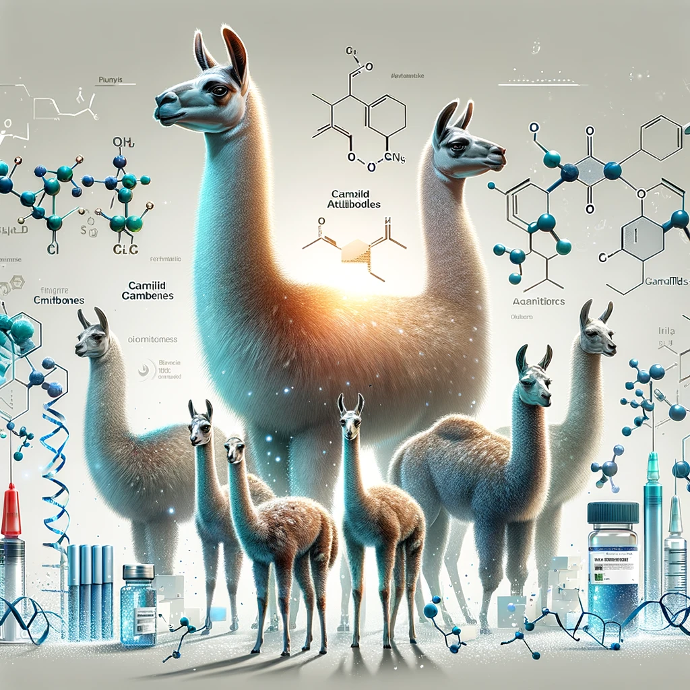Camelid Antibodies
Also known as heavy-chain antibodies or VHH antibodies, are a unique class of antibodies found in camels, llamas, and other members of the Camelidae family. Unlike conventional antibodies found in humans and other mammals, camelid antibodies lack the light chains typically associated with antibody structure. Instead, they consist solely of heavy chains, with a single antigen-binding domain called VHH or nanobody. Camelid antibodies offer several advantages, including small size, high stability, and superior antigen-binding properties, making them valuable tools in research, diagnostics, and therapeutic applications.

Camelid antibodies, also known as VHH antibodies or nanobodies, have a wide range of applications across various fields:
Biomedical Research
Camelid antibodies are used as research tools to study protein-protein interactions, protein localization, and protein structure due to their high specificity and affinity. They are also employed in basic research to investigate the mechanisms of diseases and to develop novel therapeutic strategies.
Diagnostic Assays
VHH antibodies are utilized in diagnostic assays for the detection of pathogens, toxins, and disease biomarkers. Their small size and high specificity make them ideal for developing rapid diagnostic tests, such as lateral flow assays, enzyme-linked immunosorbent assays (ELISA), and biosensors.
Imaging and Molecular Imaging
Camelid antibodies labeled with fluorescent dyes or radioisotopes are used for imaging studies, allowing for the visualization of specific molecules or targets in cells and tissues. This is particularly useful in the fields of immunohistochemistry, fluorescence microscopy, and positron emission tomography (PET) imaging.
Therapeutics
Camelid antibodies hold great promise as therapeutics for the treatment of various diseases, including cancer, infectious diseases, autoimmune disorders, and neurological conditions. Their small size, high stability, and ability to bind to unique epitopes make them attractive candidates for drug development.
Targeted Drug Delivery
VHH antibodies can be engineered to specifically target diseased cells or tissues, allowing for the delivery of therapeutic agents directly to the site of action. This targeted approach reduces off-target effects and enhances the efficacy of drug treatments.
Biotechnology and Bioprocessing
Camelid antibodies are used in biotechnology applications, such as protein purification, protein crystallization, and protein engineering. Their robust nature and high affinity enable efficient protein purification and downstream processing in biopharmaceutical manufacturing.
Agriculture and Food Safety
VHH antibodies are employed in agriculture for the detection of pathogens in livestock and crops, as well as for monitoring food safety and quality. They can also be used for the development of biosensors for on-site testing of agricultural products and environmental samples.
Overall, the unique properties of camelid antibodies make them versatile tools with applications in diverse fields, ranging from basic research to diagnostics and therape